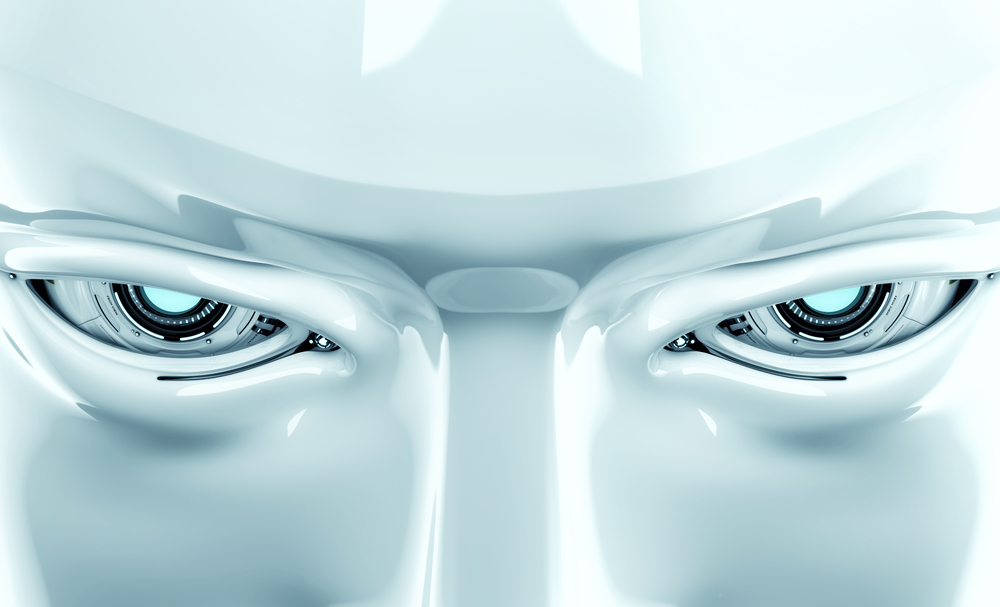- Humans and AI as seen by Steve Scott and Omelotto
- Human-Centric Transformation Amidst the Rise of Generative AI
- AI: Redefining Our World Through Teen Eyes
- The question is… Will the metaverse succeed in creating this “perfect” world?
- Do we succeed in placing humans in the heart of our companies ?
- So develop the DNA of your business without getting lost!
The post-pandemic world is being built around and with a strong impact of digital technology.
The Franco-European study on the digital impact and the health crisis on the world thereafter, conducted by the Odoxa Institute, revealed that the majority of those surveyed believe that the health crisis has accelerated the digital transformation of society.
Respondents also believe that remote work has become a more common practice and is likely to continue even after the end of the pandemic.
The study also highlights that those surveyed have a rather positive view of the impact of technology on their daily lives, especially concerning access to information and online services. However, they are also aware of the risks associated with excessive use of technology, particularly regarding the protection of personal data.
Furthermore, the study shows that respondents are aware of ongoing societal changes, such as the evolution of work modes and increased awareness of environmental importance.
They are also open to new forms of social organization, such as the collaborative
Humans and AI as seen by Steve Scott and Omelotto
So look harder and you’ll find
Forty ways he leaves us blind…
A man lives in a society where citizens monitor each other with their mobile phones | Utopia
In an increasingly digital world, we hear a lot about human connection and authentic and caring relationships.
Human-Centric Transformation Amidst the Rise of Generative AI
Are humans still at the center of this transformation with the advent of generative AI?
Generative AI, such as neural networks and machine learning models, has undoubtedly played a significant role in the ongoing transformation. While these technologies have advanced and automated various tasks, humans remain pivotal in steering, overseeing, and utilizing these tools effectively. The development and application of generative AI have been shaped by human input, creativity, and ethical considerations. However, the increasing capabilities of AI have sparked discussions about the balance of human involvement and the potential implications for society, such as job displacement, ethical concerns, and the need for regulation and governance in AI development and deployment.
Ultimately, while generative AI is transformative, human guidance and ethical oversight continue to be crucial in shaping its impact and ensuring it serves humanity’s best interests.
AI: Redefining Our World Through Teen Eyes
I asked my 15-year-old son this question as part of his summer assignment: How do you see the evolution of the world with robots and AI? Here is his full text
A New Human: the interest of AI in human life is that everything becomes simple
Gaëtan Ollé
A) AI and medicine
AI in medicine brings big changes, it allows new things. “Computers and the machines they control can achieve feats.” AI has many advantages, it makes fewer errors thanks to its precision than the doctors themselves. It allows you to know all the procedures and how to react to a certain situation because it can store a gigantic amount of information. Therefore, it can formulate hypotheses based on this data. They are tireless tools: unlike humans, machines do not require frequent breaks or refreshments! They are programmed for long hours and can run continuously without flinching
AI can be useful in many fields, it is already used in Ophthalmology. An algorithm named retinator in reference to Terminator can detect abnormalities in the retina. It gets as good results as ophthalmologists. This algorithm allows doctors to devote more time to patients because looking for retinopathy is a long and often fruitless job.
Today, there are databases. Health insurance certainly covers all insured persons, but no data is nominative. The interest in this information is public. The use of this data is regulated by law.
AI could use this data to learn. These databases could advance AI through all the different situations, but the question of patient consent would come into play because we don’t want everyone to know what disease or physical problem we have. For some people, it would seem unthinkable for their medical data to be disseminated, even if it is intended for AI.
This is why the idea was put forward to create an application to be able to manage the authorizations for the use of its data in a single space,
there are already examples in Finland where, when you enter a hospital, your data can be recorded, unless you refuse.
For me, AI is not a threat to “human” medicine. The computer will not make decisions for the doctor or the patient. It will offer leads, indications, statistical data, and probabilities that will streamline decision-making, minimizing the risk of error. AI is just another trick up your sleeves in the medical profession and a tremendous potential for development and recruitment.
B) AI and its own reality
Recently, Mark Zuckerberg, the creator of Facebook changed the name of his company, which manages the various social networks (Facebook, Instagram, WhatsApp…). The new name is META in reference to the metaverse. Indeed, Mark Zuckerberg intends to play an essential role in what he believes to be “the next evolution of social relations. The objective of our company is to promote the metaverse. We are changing our name to reflect our commitment to that future.” Meta is expected to release its metaverse soon, The giant, Apple, has also launched into the metaverse; it is due out soon with its own virtual reality headset.
But what is the metaverse?
“ Meta ” comes from the Greek and means “ beyond ”. A metaverse is therefore a universe beyond the physical world, a virtual world. The term is used to describe shared online spaces accessible through 3D interactions. The idea appeared in science fiction novels as early as the late 1960s.
As early as 2003, the video game Second Life allowed you to evolve with your avatar in such a universe. Today, gaming platforms like Roblox offer the same kind of experiences, only more sophisticated. Our avatar can interact there with the virtual environment, but also with other users, wherever they are in the world.
Tomorrow, we will be able to do almost everything in the metaverse: see a game or a concert, visit a museum, take a course, go shopping, etc. And the experience will be even more immersive thanks to virtual reality headsets, which make it possible to do without a screen.
The metaverse interests many people, many decentralized platforms aim to create a metaverse like Chromia or Efinity. The name change of Mark Zuckerberg’s company caused the price of tokens on this kind of platform to explode. It is possible to invest in the metaverse through tokens.
Some have invested in order to have profits, others for the project. These people are delighted because, in addition to the explosion in the price of tokens, the certainty of seeing one come out one day is increasing day by day.
The Role of AI in the Metaverse
AI will be very useful in the metaverse, because if we give it data / examples of things from our daily lives (house, toaster, etc.), it will be able to create new ones with the same functionality while being different.
The AI will partly create the metaverse based on the real world.
My opinion of the metaverse is optimistic. The metaverse could unlock new marketing opportunities. Indeed, we could be wherever we want in this virtual world and therefore meet whoever we want.
No need to move to work, you can have a virtual office space. The metaverse challenges itself:
- To ensure your reputation/identity
- Guarantee maximum data security
- To offer you a currency and a payment system
- to provide you with a legal system to guarantee the ethics of these multiple universes
- While offering you the best virtual place, both to promote your business and to have fun in your daily life
The question is… Will the metaverse succeed in creating this “perfect” world?
For my part, I still wonder about the place of digital in my world! As long as the human being is at the heart of the transformation and motivates the evolutions, a balance and an ethics will be established. For now, I can only say that:
“Customer Culture is the cornerstone of organizational and digital business transformations”
Dominique Popiolek-Ollé
Do we succeed in placing humans in the heart of our companies ?
More and more companies are prioritizing human-centricity in their digital transformation by emphasizing the integration of human emotions and connections within customer-employee relationships.
There are many companies that try it. But very few that reach the finish line. This world between customer culture, resilience of companies that invent themselves digital to maintain their e-reputation challenges me and confronts me . What about you?
So develop the DNA of your business without getting lost!
Need help

